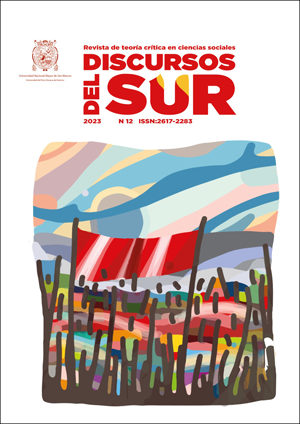Crisis and heterogeneity in the temporal representation of the Spanish political system, 2008-2020
DOI:
https://doi.org/10.15381/dds.n12.27097Keywords:
Spain, representation, political system, nationalism, corruptionAbstract
The article has two objectives: first, to study the role played by time in political representation as spaces in the development of events and setting for the political system; second, to examine the coincidence of a number of recent processes that are critical to the “normal” development of the Spanish political system. The period of analysis, between the 2008 economic recession and the beginning of the COVID-19 pandemic, February, 2020, revolves around the independence intent of the Generalitat government and the response of the Spanish government. The focus of the analysis is set in a triple crisis: territorial, corruption and inequality. The simultaneity of these three crisis causes problems in the temporal spaces of the political system and the capacity of political actors to envision their strategies beyond the context. None of the three crisis has been resolved and the Spanish political system has not reached a stability comparable to that prior to 2008. This leads to the conclusion that the crisis as temporal spaces may not be the notion that best represents the Spanish political structure, but its heterogeneity.
Downloads
Published
Issue
Section
License
Copyright (c) 2023 Juan Martín-Sánchez

This work is licensed under a Creative Commons Attribution 4.0 International License.
THE AUTHORS RETAIN THEIR RIGHTS:
(a) The authors retain their trademark and patent rights, and also on any process or procedure described in the article.
(b) The authors retain the right to share, copy, distribute, execute and publicly communicate the article published in Discursos Del Sur (in example, depositing the article in an institutional repository or publish it in a book), with recognition of its initial publication in the Discursos Del Sur.
(c) The authors retain the right to make a later publication of their work, to use the article or any part of it (for example: a compilation of their works, notes for conferences, thesis, or for a book), provided that they indicate the source of publication (authors of the work, magazine, volume, number and date).






